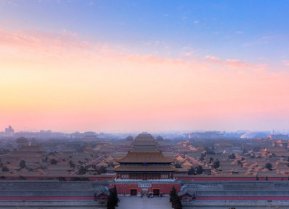China vs. America: The Geopolitical Olympics
Can American and Chinese statesmen find their way to a relationship that is simultaneously a rivalry and a partnership? The Biden administration believes that its strategy of “competitive coexistence” is a big step in that direction
Fourth, while the stakes in the Olympics are essentially a matter of national pride, in the core geopolitical competitions, GDP, technological leadership, military power, and diplomatic prowess impact national security and even survival. Americans—including this author—believe that the international security order the United States constructed in the aftermath of World War II and has been the guardian of in the decades since then has been a remarkable era in human history. This unprecedented “long peace” has provided stability that has enabled not only Americans but most of the other eight billion souls with whom we share this small planet to enjoy greater increases in income, health, and well-being than in any other era of recorded history. China’s meteoric rise is challenging the United States’ established position at the top of the global pecking order in a quintessential Thucydidean rivalry. Most Thucydidean rivalries end in war.
Fifth, as the new Olympic banner adopted in 2021 in Tokyo declares: “faster, higher, stronger—together.” Analogously, while the United States and China are destined to be the fiercest rivals of all time, neither can escape the fact that their rivalry is shaped by existential challenges both face—and neither can defeat without the cooperation of the other. Today, both nations have nuclear arsenals that, if used in all-out war, could erase each other from the map. Both live on a small planet inside an enclosed biosphere, into which both have been emitting greenhouse gases at rates that could render it uninhabitable for both.
The two economies are so entangled that the 2008 Great Recession would have become a global depression had Washington and Beijing not both responded with a coordinated stimulus. And while another Great Depression would not strictly be “existential” for either, when we recall that the depression in the 1930s fueled the rise of Fascism, Nazism, and Communism leading to the Second World War, neither want to see something like that again. Moreover, beyond these three, limiting dangers posed by transnational threats from pandemics and global terrorism to the spread of nuclear weapons requires coordination and cooperation.
Can nations be intense rivals and serious partners at the same time? Are these not competing and even contradictory imperatives? In an either-or world in which everything is black or white, friend or foe, it would seem that one would have to trump the other. However, in the business world, leaders often engage in what is called “co-optition.” For example, Apple and Samsung are ruthless competitors in selling high-end smartphones. But who is a major supplier of components for Apple’s smartphones? Samsung. When Apple’s CEO Tim Cook is asked how one of his major competitors can also be his major supplier of components, he says, “Life is complicated.”
Can American and Chinese statesmen find their way to a relationship that is simultaneously a rivalry and a partnership? The Biden administration believes that its strategy of “competitive coexistence” is a big step in that direction. The strategic concept or framework that Biden and Xi agreed to embrace at last November’s summit combines three Cs: competition, communication, and cooperation. While doing everything within their power to out-compete the other, they are also maintaining open channels for regular, candid, private communication about the most delicate and dangerous issues. These include not only conversations between the two presidents and their trusted national security advisers but also analogs in meetings between cabinet officers and military leaders. They are also cooperating on issues such as Taiwan, climate, fentanyl, trade, and others in ways that serve each nation’s interests.
F. Scott Fitzgerald wrote, “The test of a first-rate intelligence is the ability to hold two opposed ideas in the mind at the same time and still retain the ability to function.” We must hope that institutions as complex as governments can meet this test—and do so for decades ahead.
Dr. Graham Allison is the Douglas Dillon Professor of Government at Harvard University, where he has taught for five decades. Allison is a leading analyst of national security with special interests in nuclear weapons, Russia, China, and decision-making. Allison was the “Founding Dean” of Harvard’s John F. Kennedy School of Government and, until 2017, served as Director of its Belfer Center for Science and International Affairs, which is ranked the “#1 University Affiliated Think Tank” in the world.
Image: ProPhoto1234 / Shutterstock.com.


